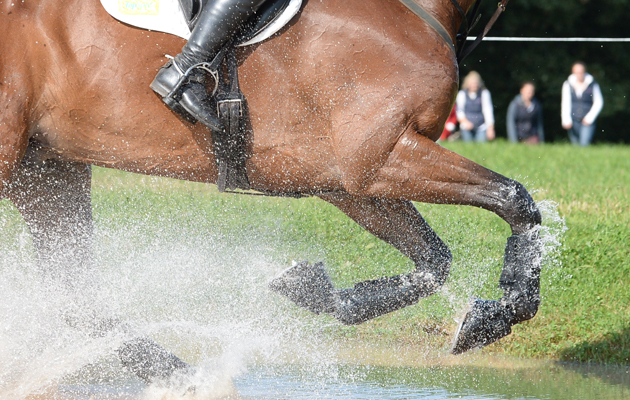Sport worldwide is facing a crisis. Hardly a week passes without a new scandal across countless different sports, whether it be allegations of corruption at major championships or charges of widespread doping.
In any sport, to be the best takes total commitment. The rewards, although not necessarily financial, are enough to tempt athletes away from the moral code of fair play.
While there is much to be positive about in equestrian sport, we walk a tightrope — inclusion at the Olympics after 2016 is not a given.
But disappointingly in eventing we are notoriously apathetic. The FEI committee rider rep was elected with a mere 27 rider votes, while there were many empty seats at the British Eventing AGM this autumn, despite it being held at Osberton, which was awash with owners and riders.
What we need to do
The International Olympic Committee have given us with the road map for what we must consider with the Agenda 2020.
We must remain a clean sport — drug infringements are rare, but one case is one too many. To secure our Olympic position we must all work together to give a cleaner than clean, exciting, popular spectacle.
Julian Seaman suggests that eventing is not a team sport — I disagree. Team tactics can play a huge part in the result and even the drop score is vital — as in cycling, where another athlete can massively contribute to his team-mate’s victory.
In a team event, support is all about the national flag not the individual, as all who experienced the atmosphere at London 2012 will know. It is crucial that we retain this engagement and encourage national pride in our athletes.
The FEI is being pro-active with regards to the Agenda 2020, as are many national federations who have assembled working groups. Eventing is land-hungry, expensive and not without risk, so we need to stake our claim for inclusion convincingly.
Our sport might be small, by global measures, but our strengths outweigh that, not just visually but due to our gender equality. It is time to engage with everyone who has even the smallest equestrian interest so that they follow our sport through all channels — especially during Rio 2016.
While I’m for modernisation I also urge caution. We must not compromise our sport by threatening its integrity. Eventing can be difficult to understand for an outsider, so changes must be well thought through to benefit the longer term and provide consistency between the Olympics and what happens every other week.
Federations’ vital role
Away from the Games we must continue to develop the sport through exploitation of commercial rights, raising awareness and exposure. Generally this responsibility lies with small, committed, hard-working groups of individuals.
It is disappointing — and I think wrong — that little real help and co-ordination comes from the national federations. With more backing from them, sponsorship might be easier to secure and therefore exposure (to benefit the Agenda 2020 cause) and prize money more appropriate. The FEI have series such as the eventing Nations Cup, but with no title sponsorship this great concept is unable to move forwards.
In the UK we have many fish in a small pond bidding for the same sponsorship pound. Readers might be surprised at which events are barely viable, but top riders are dissatisfied with prize money. I understand this and work hard to make the situation better, but where does this money come from?
We must be positive and united, as well as more pro-active and collaborative across the whole sport.
• Alec Lochore is an event organiser and was eventing manager at London 2012.
Ref: Horse & Hound; 3 December 2015
